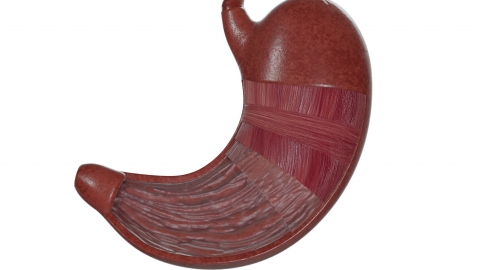What causes gastric foveolar hyperplasia?
Generally, gastric pit hyperplasia may be caused by dietary factors, lifestyle habits, Helicobacter pylori infection, chronic atrophic gastritis, or autoimmune gastritis. It is recommended to seek timely medical consultation to identify the underlying cause and receive targeted treatment. Detailed explanations are as follows:

1. Dietary Factors
Long-term improper diet, such as excessive alcohol consumption or eating spicy and irritating foods, can irritate the gastric mucosa, leading to abnormal proliferation of gastric pit epithelial cells. Symptoms such as gastric discomfort and indigestion may occur. It is recommended to adjust the diet, avoid irritating foods and alcohol, and maintain a bland diet.
2. Lifestyle Habits
Poor lifestyle habits, such as staying up late or irregular作息 (作息 should be "作息" in English, but it is better to use "irregular作息" as "irregular作息" is a common Chinese term for irregular schedules), may affect the repair and regeneration capacity of the gastric mucosa, thereby triggering gastric pit epithelial hyperplasia. Symptoms such as fatigue and decreased immunity may occur. It is recommended to improve lifestyle habits, maintain adequate sleep, and keep a regular作息.
3. Helicobacter pylori Infection
Helicobacter pylori is a bacterium that resides in the gastric mucosa and is primarily transmitted via oral-oral and fecal-oral routes. After infection, toxins released by the bacteria and the host's immune response act together on the gastric mucosa, causing local inflammatory reactions that stimulate gastric pit hyperplasia to enhance the barrier function of the gastric mucosa. Symptoms such as stomach pain, acid reflux, and nausea may accompany. It is recommended to follow medical advice and use medications such as amoxicillin capsules, amoxicillin tablets, or esomeprazole magnesium enteric-coated tablets for treatment.
4. Chronic Atrophic Gastritis
Chronic atrophic gastritis is a common gastric mucosal lesion primarily triggered by Helicobacter pylori infection. Repeated inflammation leads to atrophy of gastric mucosal glands, followed by gastric pit hyperplasia. Patients may experience symptoms such as upper abdominal discomfort, indigestion, and loss of appetite. It is recommended to follow medical instructions and use medications such as omeprazole enteric-coated capsules, gastric mucosa protectants, and sucralfate suspension gel for treatment.
5. Autoimmune Gastritis
Autoimmune gastritis is mainly caused by disorders in the body's immune mechanisms. Patients produce antibodies targeting their own gastric mucosa, leading to gastric mucosal damage and gastric pit hyperplasia. Symptoms such as anemia, weight loss, and upper abdominal pain may accompany. It is recommended to follow medical advice and use medications such as omeprazole enteric-coated tablets, prednisone tablets, and cyclophosphamide tablets for treatment.
In daily life, maintaining good dietary habits and lifestyle, as well as undergoing regular gastroscopic examinations, is important for the timely detection and treatment of gastric diseases.





